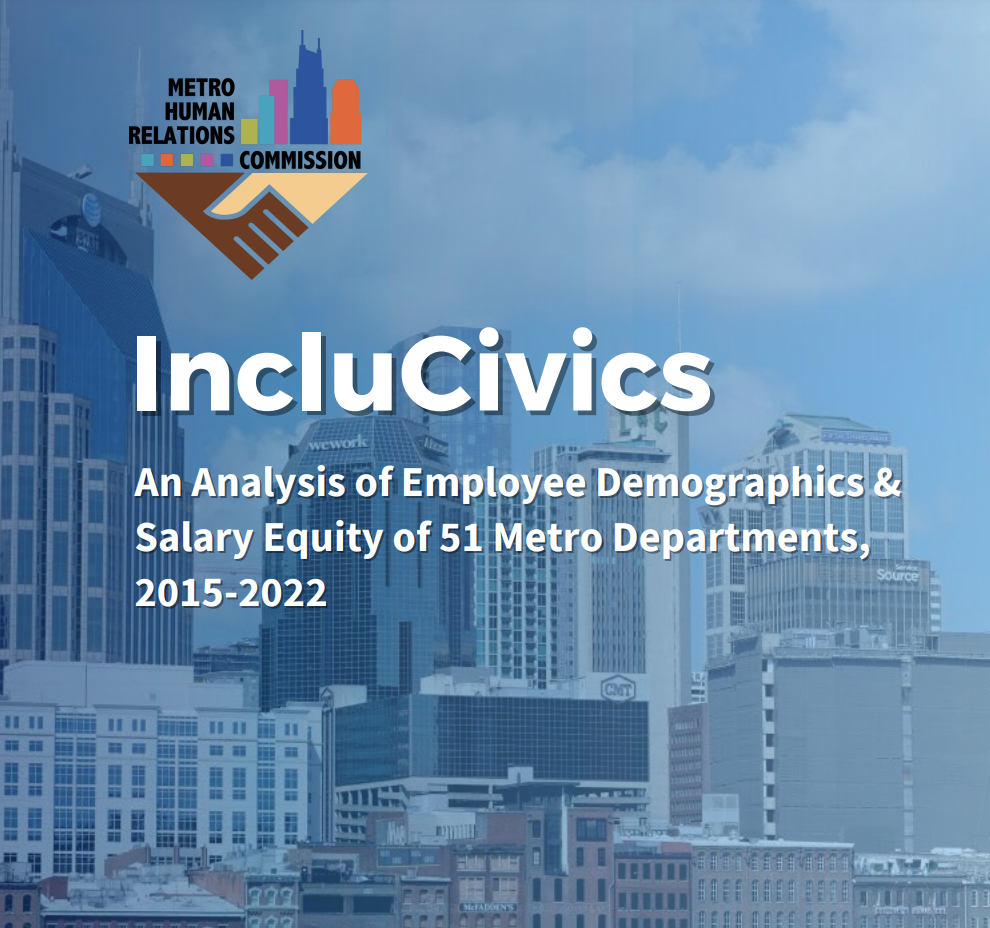
Nashville’s government employs nearly 10,000 Tennesseans. And a new eight-year analysis from the Metro Human Relations Commission shows struggles with diversity and equity across all 51 departments.
The IncluCivics 2023 report, which tracks 51 departments from 2015 to 2022, outlined several key takeaways — the first of which emphasized a lack of accurate representation.
Across Metro departments, the number of Hispanic employees is lacking. While they are the fastest growing demographic in Nashville, the percentage of employees is not keeping pace; only 3% of current Metro employees are Hispanic. In the report, the MHRC says that this may be a result of issues like “language access, hiring bias, work authorization, knowledge of opportunities or other factors.”
And while Metro is increasing the hiring of people of color, there is a substantial pay gap. The average salaries of Black and Hispanic employees trail the average salaries of their white colleagues by more than $10,000. Over the last eight years, Metro employees have all seen salary increases across the board. However, the pay gaps have remained consistent.
Wage disparity also remains an issue when it comes to gender. While the majority of Davidson County is female — with 51% female residents to its 48% male residents — the majority of Metro employees are male.
And, the male employees, who are making up 60% of the Metro workforce, are seeing higher salaries. In fact, this gap has only continued to increase since the analysis began. In 2015, the annual difference between male and female salaries was $5,300. In 2022, it rang in at $5,700.
The report did note that their gender analysis was an area needing improvement. Currently, the IncluCivics data collected on gender identity is limited to a male or female binary. This excludes a range of gender identities.
The MHRC said this issue was likely an issue when it came to race, as well. “Similarly, the limited options of six race/ethnicity categories are likely missing a diversity of racial identities,” they said. “It is possible that we are overinflating the number of White and Black/African American employees without having more options.”
The report also includes a racial breakdown of all Metro Departments. The list indicated that the most diverse department is the Community Oversight Board. This independent, civilian-led board that investigates police misconduct was abolished by state lawmakers during the most recent legislative session.

